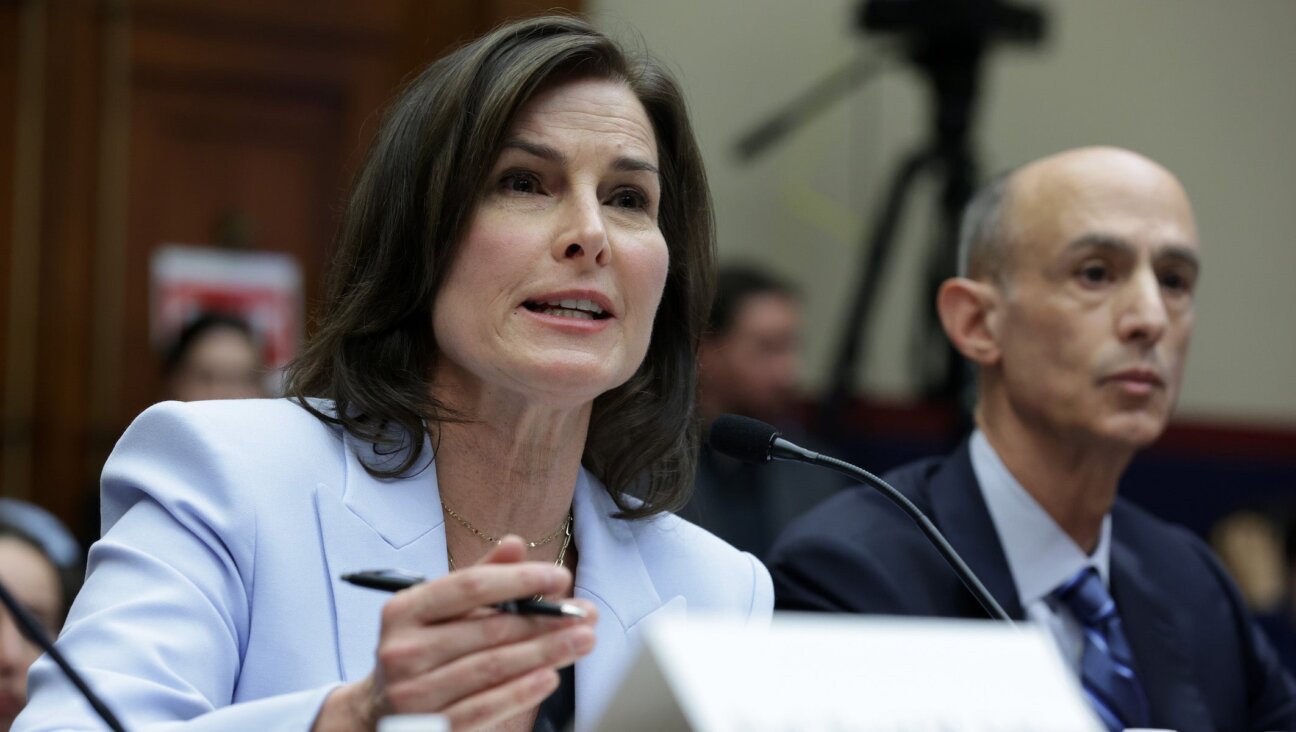International Agency Eyes Israeli Nukes
Even as the Iranian and North Korean nuclear programs cast a pall over world security, an upcoming meeting of the International Atomic Energy Agency will discuss the “threat” of Israel’s nuclear capability.
The IAEA’s board of governors is expected to meet September 8 to debate a much-awaited report on Tehran’s nuclear forays, but the Vienna-based United Nations agency will convene its general conference a week later to discuss, among other matters, an agenda item on “Israeli nuclear capabilities and threat.”
The meeting will take place in a volatile context. Arab countries, which requested the discussion, have for years called for IAEA inspections in Israel. They now see their demand as even more justified at a time when Western countries are leaning heavily on Iran to provide unfettered access to its nuclear facilities — not to mention the fact that Washington justified its war in Iraq largely on the need to rid it of weapons of mass destruction.
Egypt, in particular, has contended for years that Israel’s nuclear capabilities are endangering regional stability.
“The Arab countries always ask for an opportunity to discuss Israel’s nuclear program, so this is an opportunity to do it,” said an IAEA spokeswoman, Melissa Fleming.
A spokesman for Israel’s Foreign Ministry, Jonathan Peled, said the issue was routine and Israel’s nuclear weapons — which Jerusalem does not publicly acknowledge possessing — are discussed regularly, but never trigger any formal resolution sanctioning Israel because of the power of the United States.
“The Arabs do this every year, but in order to have a comprehensive debate amid a consensus on a resolution against Israel, you need the okay of the board of governors [of the IAEA] and you don’t have it” because of Washington’s influence on the board, he said.
The discussion of the Israeli nuclear “threat” follows the IAEA secretariat’s receipt on June 5 of a letter and an explanatory memo from the ambassador of Oman in the name of the Arab member states of the IAEA. The letter explains that such an item had been on the agenda of the general conference for years but had been left off since 1992, when the conference decided that it could impede the nascent peace process. It was reinstated in the agenda in 2000, just as the current intifada was getting underway. The letter and memo came out of a May 28 meeting of the Arab League office in Vienna.
“The policies of the present Israeli government have obstructed the peace process in the Middle East and all initiatives to free the region of the Middle East of weapons of mass destruction, and in particular of nuclear weapons, have failed,” the memo said. “All member states are invited to cooperate in order to remedy this situation resulting from the fact that Israel alone possesses nuclear capabilities, which are undeclared and not subject to international control and which constitute a permanent threat to peace and security in the region.”
A U.N. source close to the issue said that the Israel item has been on and off the agenda of annual IAEA General Conferences since the early-1980s attack by Israel against Iraq’s nuclear reactor.
“There’s no indication at present that the outcome of the item will be any different at this year’s GC from others: There will not be the simple majority required to pass a resolution against Israel,” he said.




















